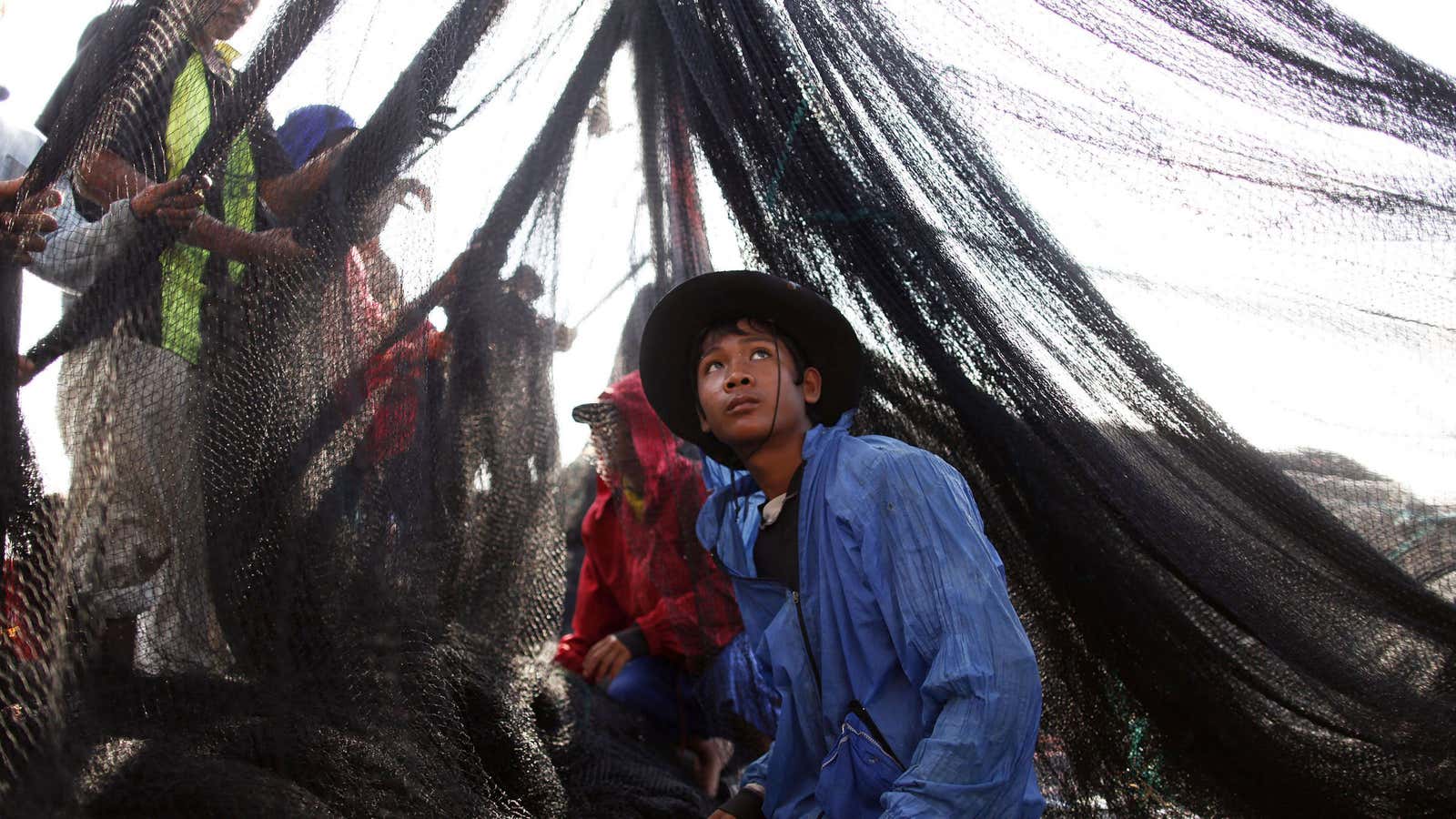This article has been corrected.
If you’re a seafood eater in North America, Japan, or Europe, chances are good that someone endured torture, beatings, sleep deprivation and wage-theft to bring you your shrimp cocktail. That’s the upshot of a harrowing must-read Guardian piece on the rampant abuses in Thailand’s fishing export trade (an issue we’ve reported on in the past). Here’s our visual explanation of the complicated reasons that Thailand’s seafood industry resorts to slavery and the exploitation of migrants:
90% of the 4.6 million tons (4.3 million tonnes) of seafood Thailand produces is exported. These are its biggest markets:
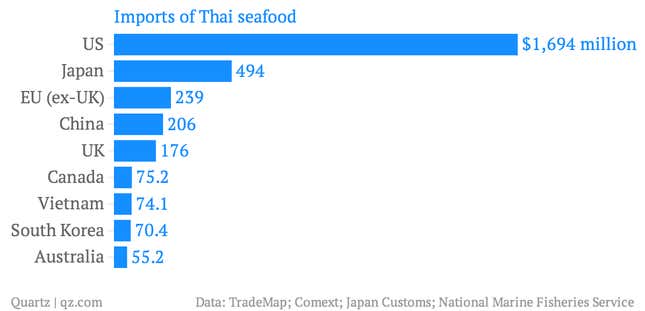
A lot of that is shrimp—a wealthy-country favorite—and Thailand dominates that industry:
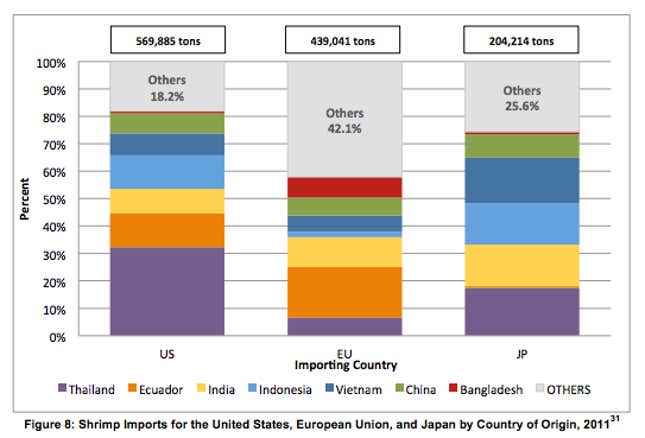
A growing share of Thailand’s seafood exports isn’t caught at sea. As seafood farming—a.k.a aquaculture—increases, Thai boats are now catching around 40% less than they were a decade ago:
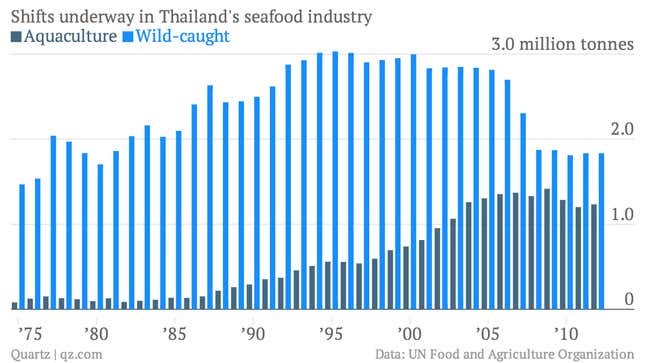
Some of what they are catching is ”trash fish”—species that people in rich countries generally won’t eat. Much of that now becomes “fishmeal” to feed farmed seafood. Thailand also exports it as pet food and animal feed:
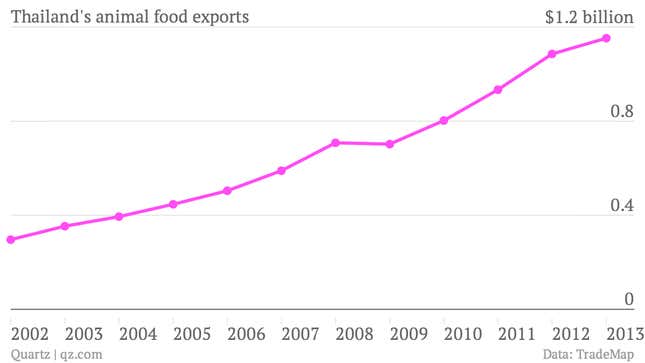
Why is Thailand shifting to trash fish and aquaculture? Because it has plundered its own coastal waters so thoroughly that it has overfished pretty much every valuable native species (pdf, p.16, 36):
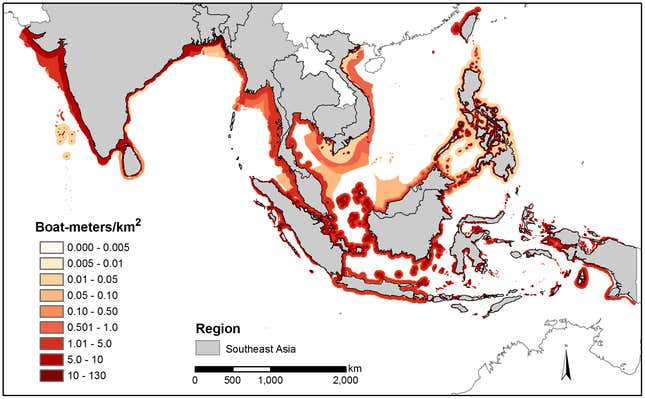
That means ships have to travel farther to find those prized catches, including tuna and squid:
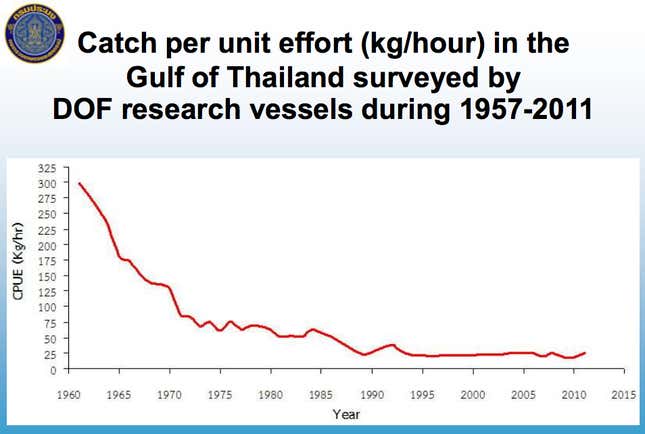
Boat captains don’t like that, because it drives up wages. Worse, Thailand’s working population is aging fast:
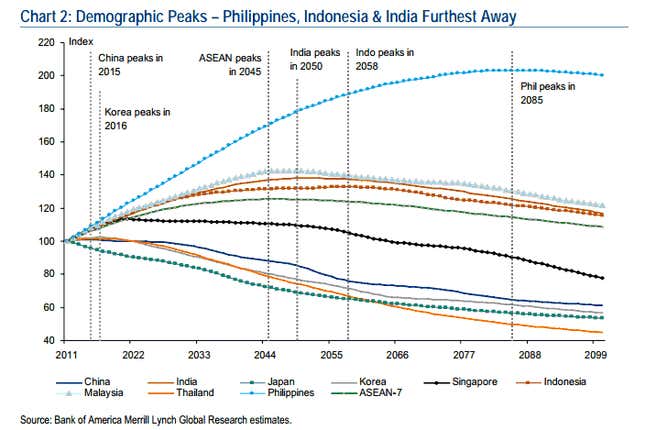
Which leaves the country with one of the world’s lowest unemployment rates. With jobs aplenty, most native Thais refuse low-paying seafood industry work:
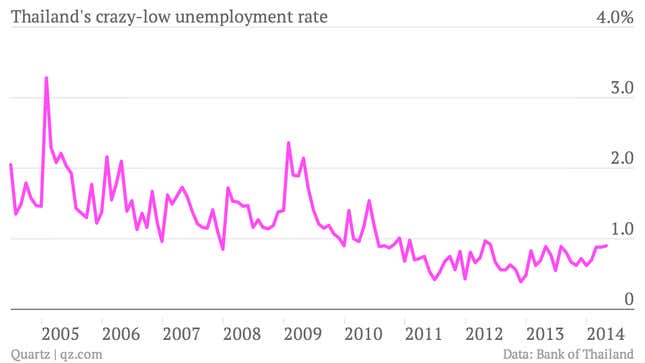
So, instead of investing in more efficient processing or paying higher wages, Thai shipowners are simply dragooning migrants from poorer neighboring countries:
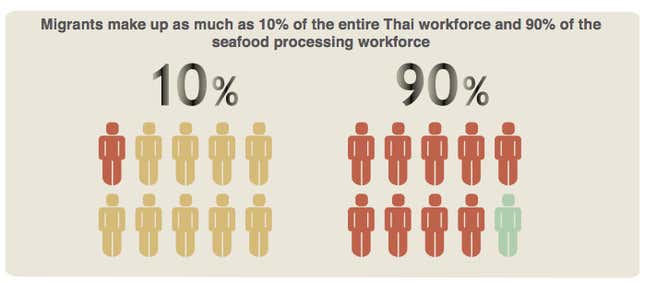
While some of these people are trafficked directly from Myanmar, Laos or Cambodia, others are exploited once they’ve fled to Thailand, usually in search of economic opportunity unavailable at home:
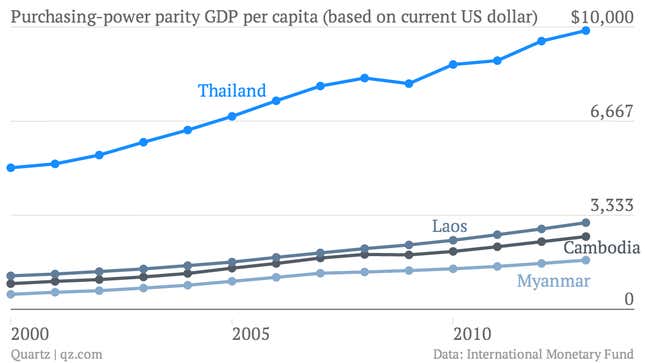
And that’s why, as the Guardian reports, people like these guys are being sold to boat captains for as little as $420—and often tortured and beaten so they won’t try to escape.
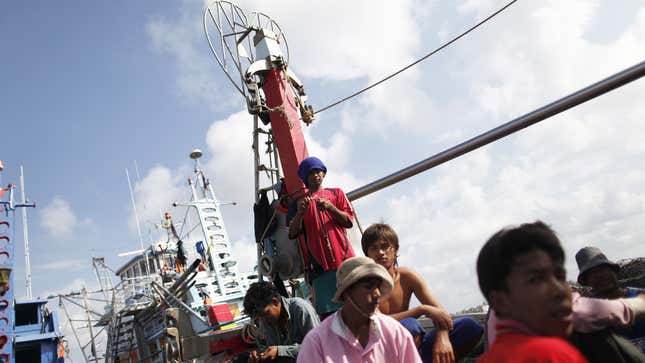
Correction: The third chart, illustrating Thailand’s declining production of wild-caught seafood, replaces a previous one that was based on incomplete data.
